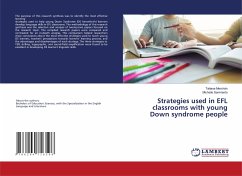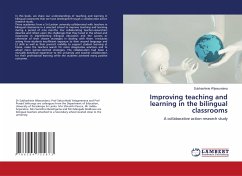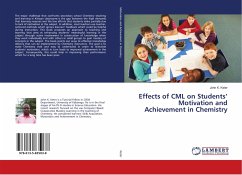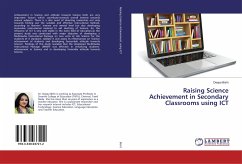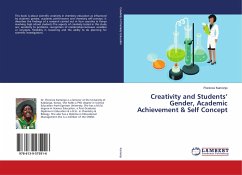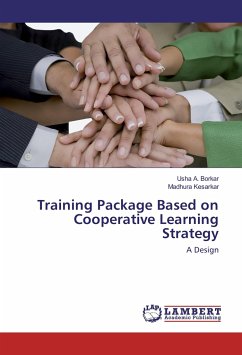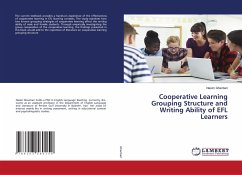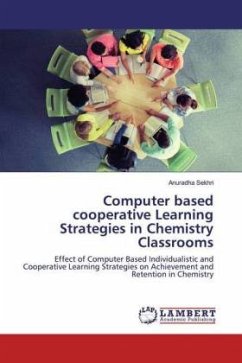
Computer based cooperative Learning Strategies in Chemistry Classrooms
Effect of Computer Based Individualistic and Cooperative Learning Strategies on Achievement and Retention in Chemistry
Versandkostenfrei!
Versandfertig in 6-10 Tagen
55,99 €
inkl. MwSt.

PAYBACK Punkte
28 °P sammeln!
Computer based cooperative learning can be effective for delivering content to students and for instructors interacting with each other in a face to face classroom using communications tools such as email, conferencing system, whiteboards, chat rooms and video conferencing and it can deliver content in multimedia format like a video on demand, audio clips, animations, simulations and movies also. Computer based learning can support for all educational levels and can be useful for formal and non-formal education. So, learning activities should be planned in such a way that educators must integr...
Computer based cooperative learning can be effective for delivering content to students and for instructors interacting with each other in a face to face classroom using communications tools such as email, conferencing system, whiteboards, chat rooms and video conferencing and it can deliver content in multimedia format like a video on demand, audio clips, animations, simulations and movies also. Computer based learning can support for all educational levels and can be useful for formal and non-formal education. So, learning activities should be planned in such a way that educators must integrate technology and cooperative learning when students are actively involved in sharing ideas and work cooperatively to complete academic tasks.The present study investigates the effect of computer based individualistic and cooperative learning strategies on achievement and retention in chemistry in relation to scientific creativity and scientific aptitude.




